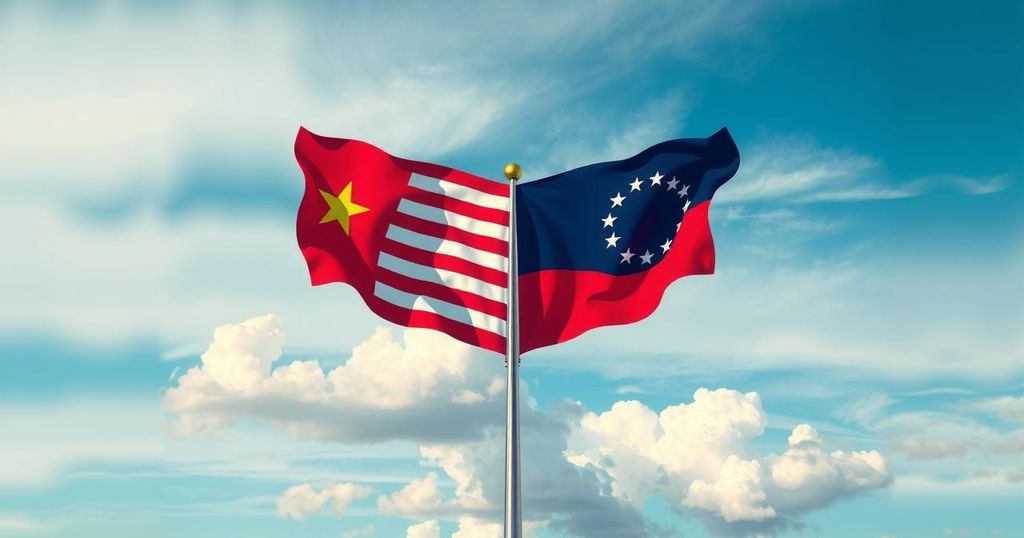World news
ASIA, BIDEN ADMINISTRATION, DEFENSE, DONALD TRUMP, ENERGY INFRASTRUCTURE, EUROPE, EUROPE/ASIA, KOREA, NORTH, KURSK, MILITARY, NATIONAL INTELLIGENCE SERVICE, PYONGYANG, RUSSIA, TRUMP, UKRAINE, US DEPARTMENT OF DEFENSE, US DEPARTMENT OF STATE, US NATIONAL SECURITY COUNCIL, WAR, WEST
Daniel O'Connor
0 Comments
The Disappearing Act: North Korean Soldiers and Their Role in the Ukraine Conflict
Ukrainian officials report that North Korean troops have withdrawn from combat in Ukraine, following heavy casualties. Their departure aligns with U.S. political changes and efforts for peace negotiations. The narrative surrounding their involvement has been complicated by misinformation and shifting political circumstances, diminishing the impact of propaganda efforts by Ukraine and South Korea. Consequently, the future of North Korean forces in the conflict remains uncertain.
North Korean soldiers who were previously deployed to the Kursk region of Russia appear to have withdrawn from Ukraine, as reported by Ukrainian military officials. They estimate that 11,000 North Korean troops retreated due to heavy casualties, with up to 40% of troops either killed, injured, or captured. Despite this withdrawal, officials suggest that North Korea may be planning to reinforce its troops for future operations.
The involvement of North Korean troops in the Ukraine conflict has been a contentious issue, confirmed by South Korea’s National Intelligence Service in October 2024. However, their recent absence suggests a fading presence, coinciding with U.S. President Donald Trump’s inauguration when calls for peace negotiations intensified. This could indicate a strategic maneuver by North Korea and Russia to engage diplomatically while also appeasing Trump’s desire for dialogue.
Despite the ambiguous nature of troop deployments, North Korea and Russia have strategically refrained from officially acknowledging the presence of North Korean soldiers, thereby complicating the narrative surrounding their engagement in Ukraine. This ambiguity serves to strengthen their negotiating position while placing pressure on the U.S. to respond to the evolving situation in the region.
Ukraine faces challenges in leveraging the issue of North Korean troop deployment, particularly with Trump back in power, which diminishes international attention to the matter. Efforts to highlight North Korea’s involvement have become less impactful, with the Ukrainian government accused of exaggerating claims regarding troop deployment without substantial evidence. Rather than collaborating with South Korea, Ukraine has sometimes relied on dubious reports.
The dissemination of fabricated reports regarding North Korean casualties and activities has further clouded the situation. Former U.S. Secretary of Defense Lloyd Austin noted a lack of credible evidence regarding North Korean forces actively participating in combat, contrasting earlier assertions made by various media outlets about the troops’ engagements.
As political dynamics shift, both Ukraine and South Korea now grapple with the fallout from these misleading narratives. After Trump raised concerns about North Korean involvement in Ukraine, and following the political turbulence in South Korea with President Yoon’s impeachment, the attention on the deployment of North Korean soldiers has significantly waned.
The reality regarding the status of North Korean troops remains unclear, further obscured by information warfare and propaganda. Global politics often dictate that entities do not exist if their significance is unacknowledged, thus complicating the understanding of troop deployments. Moving forward, the future of North Korean soldiers in the Ukraine conflict remains uncertain, raising questions about their role and visibility in ongoing operations.
The presence of North Korean soldiers in Ukraine has been a controversial topic, with varying reports on their deployment and involvement in combat. As tensions remain high in the region, the dynamics of international relationships, particularly between North Korea and Russia, influence the narrative surrounding military actions. The situation is further complicated by the political climate in the United States and South Korea, which affects how supporter countries respond to the conflict and analyze troop movements. The strategic significance of these troops is underscored by their perceived role as both combat support and political pawns, with allies using their deployment as a bargaining chip in negotiations. The political landscape, shifting with Trump’s presidency and Yoon’s governance in South Korea, indicates fluctuating international responses to North Korea’s military actions and the propaganda that ensues from such engagements.
In summary, the withdrawal of North Korean troops from Ukraine has left ambiguity regarding their future involvement in the conflict. The situation has become muddied by misinformation and the evolving political landscape, particularly with the ongoing tensions surrounding the U.S. and its allies. As both Ukraine and South Korea navigate this complex issue, the reality of North Korean military engagement remains unclear and heavily influenced by global perceptions and political dynamics.
Original Source: english.hani.co.kr




Post Comment